Related Research Articles
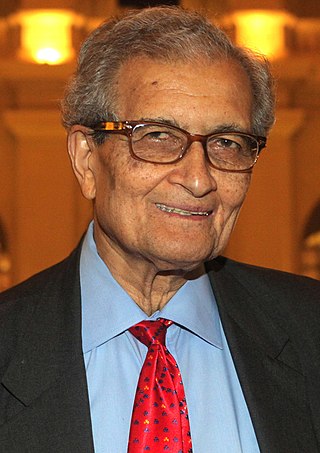
Amartya Kumar Sen is an Indian economist and philosopher, who since 1972 has taught and worked in the United Kingdom and the United States. Sen has made contributions to welfare economics, social choice theory, economic and social justice, economic theories of famines, decision theory, development economics, public health, and measures of well-being of countries.

Feminist economics is the critical study of economics and economies, with a focus on gender-aware and inclusive economic inquiry and policy analysis. Feminist economic researchers include academics, activists, policy theorists, and practitioners. Much feminist economic research focuses on topics that have been neglected in the field, such as care work, intimate partner violence, or on economic theories which could be improved through better incorporation of gendered effects and interactions, such as between paid and unpaid sectors of economies. Other feminist scholars have engaged in new forms of data collection and measurement such as the Gender Empowerment Measure (GEM), and more gender-aware theories such as the capabilities approach. Feminist economics is oriented towards the goal of "enhancing the well-being of children, women, and men in local, national, and transnational communities."

The capability approach is a normative approach to human welfare that concentrates on the actual capability of persons to achieve lives they value rather than solely having a right or freedom to do so. It was conceived in the 1980s as an alternative approach to welfare economics. In this approach, Amartya Sen and Martha Nussbaum combine a range of ideas that were previously excluded from traditional approaches to welfare economics. The core focus of the capability approach is improving access to the tools people use to live a fulfilling life.
Randy Pearl Albelda is an American feminist economist, activist, author, and academic who specialises in poverty and gender issues.
Marianne A. Ferber was an American feminist economist and the author of many books and articles on the subject of women's work, the family, and the construction of gender. She held a Ph.D. from the University of Chicago.
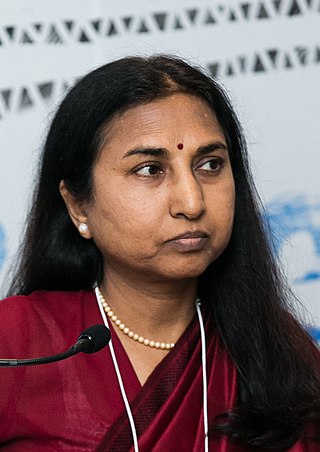
Bina Agarwal is an Indian development economist and Professor of Development Economics and Environment at the Global Development Institute at The University of Manchester. She has written extensively on land, livelihoods and property rights; environment and development; the political economy of gender; poverty and inequality; legal change; and agriculture and technological transformation.
Barbara Rose Bergmann was a feminist economist. Her work covers many topics from childcare and gender issues to poverty and Social Security. Bergmann was a co-founder and president of the International Association for Feminist Economics, a trustee of the Economists for Peace and Security, and Professor Emerita of Economics at the University of Maryland and American University.
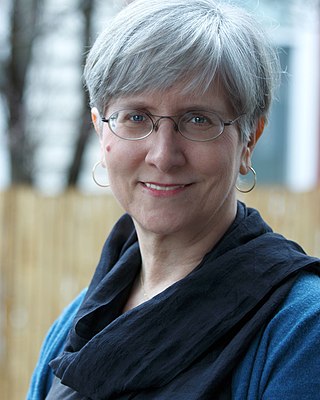
Julie A. Nelson is an emeritus professor of economics at the University of Massachusetts Boston, most known for her application of feminist theory to questions of the definition of the discipline of economics, and its models and methodology. Nelson received her Ph.D. degree in economics from the University of Wisconsin–Madison. Her work focuses on gender and economics, philosophy and methodology of economics, ecological economics, and quantitative methods. Nelson is among the founders and the most highly cited scholars in the field of feminist economics.
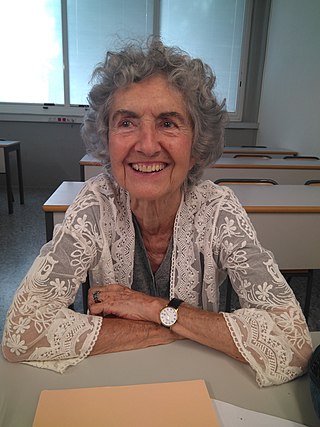
Lourdes Benería is a Spanish–American economist. She was Professor Emerita at Cornell University's Department of City and Regional Planning. The author and editor of many books and articles, her work has concentrated on topics having to do with labor economics, women's work, the informal economy, Gender and development, Latin American Development and globalization. Before Cornell, she taught at Rutgers University and has given courses in other international centers. She worked at the ILO for two years and has collaborated with other UN organizations, such as UNIFEM and UNDP, and with several NGOs. She obtained her PhD at Columbia University in 1975.
Work intensity is defined as activity in relation to the capacity for that work. It is a topic that affects developed and developing countries in different ways. There are many aspects to work intensity including multitasking, time poverty, health implications, and policy considerations. Multitasking is the overlap of many activities, usually care and informal work, that negatively impacts the livelihood of people, especially women, in the developing world. Time poverty is defined as the lack of time for leisure and rest activities after time spent working. High work intensity coupled with multitasking and time poverty has a negative correlation with health outcomes. Work intensity is seldom considered when proposing new policy and legislation. As more women enter the workforce, work intensity and its implications are being brought to the forefront of policy, development, and empowerment debates.
Intra-household bargaining refers to negotiations that occur between members of a household in order to arrive at decisions regarding the household unit, like whether to spend or save or whether to study or work.

Michèle Pujol, was a French intellectual, feminist, economist, scholar, and human rights activist. She was an assistant professor at the University of Victoria's Department of Women's Studies and held a chair at the University of Manitoba. She was a significant feminist economic scholar and an advocate of social justice.

Elizabeth Secor Anderson is an American philosopher. She is Arthur F. Thurnau Professor and John Dewey Distinguished University Professor of Philosophy and Women's Studies at the University of Michigan and specializes in political philosophy, ethics, and feminist philosophy.
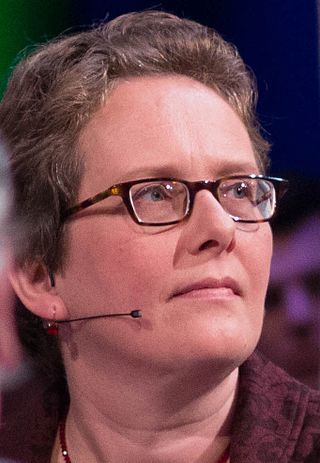
Ingrid A.M. Robeyns holds the Chair Ethics of Institutions at Utrecht University, Faculty of Humanities and the associated Ethics Institute.
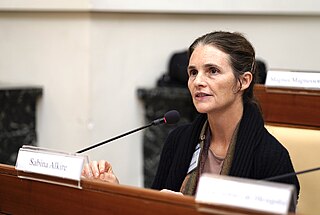
Sabina Alkire is the director of the Oxford Poverty and Human Development Initiative (OPHI), an economic research centre within the Oxford Department of International Development at the University of Oxford, England, which was established in 2007. She is a fellow of the Human Development and Capability Association. She has worked with organizations such as the Commission on the Measurement of Economic Performance and Social Progress, the United Nations Human Development Programme Human Development Report Office, the European Commission, and the UK's Department for International Development.
Susan 'Sue' Felicity Himmelweit, is a British economist, emeritus professor of economics for the Open University in the UK, and was the 2009 president of the International Association for Feminist Economics (IAFFE).

The International Association for Feminist Economics (IAFFE) is a non-profit international association dedicated to raising awareness and inquiry of feminist economics. It has approximately eight hundred members in sixty-four countries. The association publishes a quarterly journal entitled Feminist Economics.
Joyce Penelope Jacobsen is a former President of Hobart and William Smith Colleges. Dr. Jacobsen was elected as the 29th President of Hobart College and the 18th President of William Smith College. Jacobsen is a scholar of economics, an award-winning teacher and an experienced administrator. She began her presidency on July 1, 2019. She is the first woman to serve as president of Hobart and William Smith Colleges.
Creating Capabilities is a book, first published by economist Martha Nussbaum in 2011, which outlines a unique theory regarding the Capability approach or the Human development approach. Nussbaum draws on theories of other notable advocates of the Capability approach like Amartya Sen, but makes specific distinctions. One distinct idea she proposes is to choose a list of capabilities based on some aspects of John Rawls' concept of "central human capabilities." These ten capabilities encompass everything Nussbaum considers essential to living a life that one values. Martha Nussbaum and Amartya Sen are considered to be the main scholars of this approach, but have distinctions in their approach to capabilities. Sen disagrees with Nussbaum's list of values on the grounds that it does not fully encompass the range of capabilities one would consider to live a fulfilling life, which inherently differs by person.
References
- ↑ "Humphries, Jane, 1948–". Library of Congress. Retrieved 11 August 2014.
data sheet (b. 11-9-48)
- 1 2 3 4 "Jane Humphries". Faculty of History, Oxford University. Retrieved 1 September 2016.
- ↑ "Professor Jane Humphries elected President of the Economic History Society". All Souls College, Oxford University. 16 April 2010. Archived from the original on 3 December 2010. Retrieved 1 January 2011.
- ↑ "2013–2014 EHA Officers and Board of Trustees". Economic History Association. Retrieved 15 April 2014.
- ↑ Staff writer (2014), "HUMPHRIES, Prof. (Katherine) Jane", Who's Who 2014, Oxford: A & C Black, ISBN 9781408181195. Online edition, Oxford University Press.
- ↑ Humphries, Katherine Jane (1973). The role of the manufacturing sector in economic development (Ph.D thesis). Cornell University. OCLC 64678496.
- ↑ "Professor Jane Humphries".
- 1 2 "Oxford Centre of Economic and Social History".
- ↑ "Editorial Board – Associate Editors". Gender, Work & Organization. doi:10.1111/(ISSN)1468-0432 . Retrieved 15 April 2014.
- ↑ "Editorial Board". Taylor and Francis. Retrieved 15 April 2014.
- ↑ Waara, Anneli (15 October 2015). "Childhood and adolescence researchers awarded honorary doctorates". www.uu.se. Uppsala University, Sweden. Retrieved 2 February 2016.
- ↑ "2019 Royal Economic Society Prize". www.res.org.uk. 31 March 2020. Retrieved 10 April 2020.